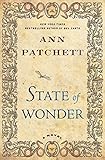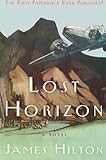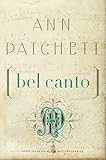 Death arrives in the first sentence of Ann Patchett’s sixth novel, State of Wonder. Deep in the farthest reaches of the Amazonian rainforest, a middle-aged drug researcher who was sent there on business but has no business being there succumbs to fever, and the secretive field scientists he’s with dash off a quick note to the States. It arrives “a breath of tissue so insubstantial that only the stamp seemed to anchor it to this world.” How terrible a weight these things still carry. Someone must tell his young family. Someone must pack up his office. And someone must be sent back up the river to recover his body and find out what the hell is going on.
Death arrives in the first sentence of Ann Patchett’s sixth novel, State of Wonder. Deep in the farthest reaches of the Amazonian rainforest, a middle-aged drug researcher who was sent there on business but has no business being there succumbs to fever, and the secretive field scientists he’s with dash off a quick note to the States. It arrives “a breath of tissue so insubstantial that only the stamp seemed to anchor it to this world.” How terrible a weight these things still carry. Someone must tell his young family. Someone must pack up his office. And someone must be sent back up the river to recover his body and find out what the hell is going on.
 When the Company in Joseph Conrad’s Heart of Darkness goes after its rogue and raging ivory trader, Mr. Kurtz, it sends Marlow, a veteran boat captain; his mission is the river. When Vogel, Patchett’s invented pharmaceutical giant, goes after its rogue drug researcher, Annick Swenson, a brilliant doctor who has disappeared into the jungle with millions of Vogel’s dollars while developing a radical fertility drug, it sends Marina Singh, a mid-level lab scientist and former Swenson student; her mission is the body, the drug, and the aging Swenson herself. It’s no vacation, but Singh desperately needs a dose of something exotic. “She was forty-two. She was in love with a man”—Vogel’s CEO, twenty years her senior—“she did not leave the building with,” and April in Minnesota is bleak. “The crocuses she had seen only that morning, their yellow and purple heads straight up from the dirt, were now frozen as solid as carp in the lake.”
When the Company in Joseph Conrad’s Heart of Darkness goes after its rogue and raging ivory trader, Mr. Kurtz, it sends Marlow, a veteran boat captain; his mission is the river. When Vogel, Patchett’s invented pharmaceutical giant, goes after its rogue drug researcher, Annick Swenson, a brilliant doctor who has disappeared into the jungle with millions of Vogel’s dollars while developing a radical fertility drug, it sends Marina Singh, a mid-level lab scientist and former Swenson student; her mission is the body, the drug, and the aging Swenson herself. It’s no vacation, but Singh desperately needs a dose of something exotic. “She was forty-two. She was in love with a man”—Vogel’s CEO, twenty years her senior—“she did not leave the building with,” and April in Minnesota is bleak. “The crocuses she had seen only that morning, their yellow and purple heads straight up from the dirt, were now frozen as solid as carp in the lake.”
Patchett does not trade in weak women. (It’s the men, like Singh’s father, an Indian graduate student so absorbed in his studies that the family ate dinners on the floor, so as not to disturb his stacks of papers piled in the dining room, who are little more than shadows in Patchett’s work.) She subjects her women to terrible losses, and then lends them the strength to march forward in ways that are as heroic as they are practical. Singh is a winning narrator. Life has muddled her plans and substituted its own realities. An early marriage fizzled two years into her medical residency, so at thirty, she and her husband “bought their own divorce kit at an office supply store and amicably filled out the paperwork at the kitchen table.” A tragic accident at the hospital drove her from clinical medicine and sidelined her into a pharmacology PhD program. Having arrived, without intending to, alone at middle age, she might be permitted some bitterness. Instead, she wears her quiet self-composure like a charm, and if she suffers long nights of indecision about her mission to the Amazon, she doesn’t betray it. Feeling needed, she goes. Her boss and lover packs her off with a bundle of GPS technology and extra anti-malarials. He’s doesn’t want to stay in touch so much as he wants to keep her healthy and on a short digital leash. To borrow Wilde, to lose one employee is tragic—to lose two smacks of carelessness.
Minnesota bookends the novel, but Patchett has written a Brazilian adventure tale. When she arrives, Singh’s passport is a “booklet filled with empty pages,” and she’s welcomed to the country by the disappearance of her luggage. Suddenly, luxury is a toothbrush and shopping in the market is an obstacle course of language and custom. By the time she leaves, months later, she’ll be wearing entirely new skin. Patchett captures well the essential loneliness and boredom of traveling solo; the foreign becomes exhausting, the heat devastating. Dr. Swenson stays in the field for months on end, and her gatekeepers in the port town where Singh is waiting are a pair of blithe young bohemians—house sitters who collect the doctor’s mail, smoke dope in her apartment, and stonewall inquisitive journalists. (“She was such a pretty girl. It must be hard, Marina imagined, for her to have no place to go.”) There is little to do but wait. As the pages pass, and the odd trio go on one field trip after another, we begin to forget why Singh has come in the first place. Then, like apparition, Dr. Swenson is back in town. Finally, we’re headed “down a river into the beating heart of nowhere,” the throttle on the boat—and on the novel—open full.

 History and art provide some useful examples of how things turn out when the white folks rush headlong into the wilderness, brimming with ambition and delusion, and Patchett slyly pays her dues. “Dr. Singh, I presume,” Marina is greeted when she arrives at the upriver research station. Fitzcarraldo, Werner Herzog’s 1982 film about dragging a steamship over a small Peruvian mountain, makes an appearance, as does Lost Horizon, the 1933 novel that invented Shangri-La. Dr. Swenson has been living among the remote Lakashi tribe for more than a decade, unlocking the secret to their astounding fertility, which allows women to bear children into their seventies. “Their eggs aren’t aging, do you get that?” an excited researcher asks Singh. “This is the ovum in perpetuity, menstruation everlasting.” Now there’s an idea that only a male drug exec could love. And though the stakes—and potential profit margins—couldn’t be higher, we don’t feel the tension build until the human dramas begin to play out at the station.
History and art provide some useful examples of how things turn out when the white folks rush headlong into the wilderness, brimming with ambition and delusion, and Patchett slyly pays her dues. “Dr. Singh, I presume,” Marina is greeted when she arrives at the upriver research station. Fitzcarraldo, Werner Herzog’s 1982 film about dragging a steamship over a small Peruvian mountain, makes an appearance, as does Lost Horizon, the 1933 novel that invented Shangri-La. Dr. Swenson has been living among the remote Lakashi tribe for more than a decade, unlocking the secret to their astounding fertility, which allows women to bear children into their seventies. “Their eggs aren’t aging, do you get that?” an excited researcher asks Singh. “This is the ovum in perpetuity, menstruation everlasting.” Now there’s an idea that only a male drug exec could love. And though the stakes—and potential profit margins—couldn’t be higher, we don’t feel the tension build until the human dramas begin to play out at the station.
Dr. Swenson is a tropical storm of genius and brio. She delights in adding exponents to the ethical equations at hand in the jungle. She preaches a gospel of absolute non-intervention— “They are an intractable race,” she lectures Singh on the Lakashi. “You might as well come down here to unbend the river”—even as she pricks their fingers, collects their spit, and swabs their vaginas. She issues demands, barks her thanks, and keeps her emotions stoppered in a test-tube. In perhaps their most tender moment, Singh visits an ailing Swenson in her quarters; the elder woman sends her away. “I know how to sleep, Dr. Singh. I don’t need you to watch me unless it is something you are trying to learn to do yourself.”
 Patchett has set herself an ambitious task. She begins far from home—Nashville, where she lives and writes—and moves steadily away from the known world. Her prose, as she established with Bel Canto and earlier works, is full of tenderness and insight; she writes of sorrow and invasive medical procedures with equal ease. Her language shows devotion to how the sentence unfurls across the page. She has remarkable skill, as a storyteller, knowing precisely when to cut away from a scene. She doesn’t write dialogue; she writes conversations, full of human surprise, humor, and outrage, which act in service to the many Big Ideas she’s probing—about aging and fertility, children and careers, ethics and abuse. Heart of Darkness had a post-colonial mission, well ahead of its time, and Conrad was swinging for the fences. State of Wonder has some questions, none of them as urgent, but compelling still.
Patchett has set herself an ambitious task. She begins far from home—Nashville, where she lives and writes—and moves steadily away from the known world. Her prose, as she established with Bel Canto and earlier works, is full of tenderness and insight; she writes of sorrow and invasive medical procedures with equal ease. Her language shows devotion to how the sentence unfurls across the page. She has remarkable skill, as a storyteller, knowing precisely when to cut away from a scene. She doesn’t write dialogue; she writes conversations, full of human surprise, humor, and outrage, which act in service to the many Big Ideas she’s probing—about aging and fertility, children and careers, ethics and abuse. Heart of Darkness had a post-colonial mission, well ahead of its time, and Conrad was swinging for the fences. State of Wonder has some questions, none of them as urgent, but compelling still.
The jungle hides its secrets until the very last, threatening to swallow Singh altogether. The story is still roaring at full-throttle as she heads down the river, back to beautiful, mundane civilization and Minnesota’s summer raspberries. But escape is never so easy, and after what she’s seen, we doubt very much that her fevered dreams will leave her soon.








